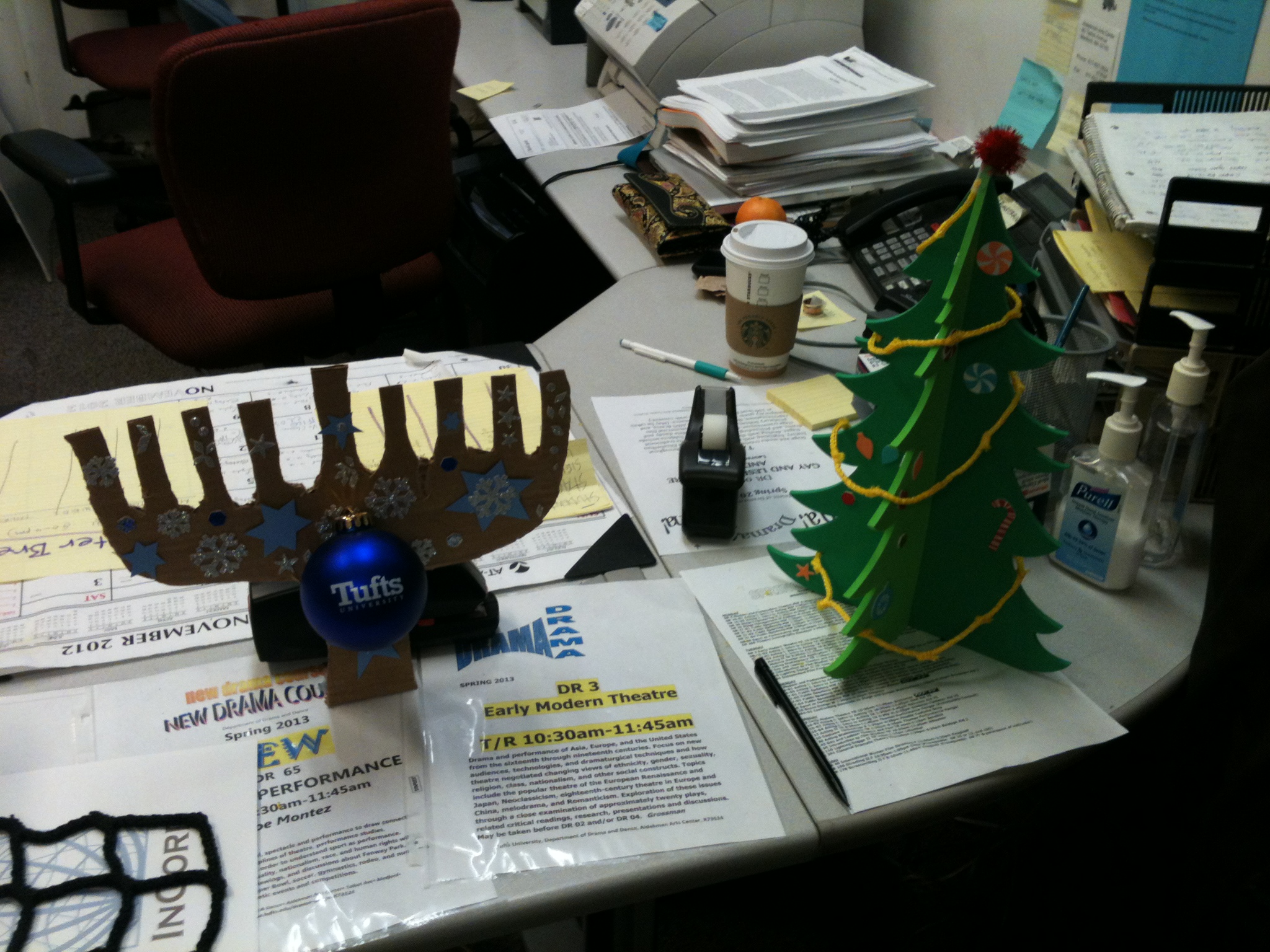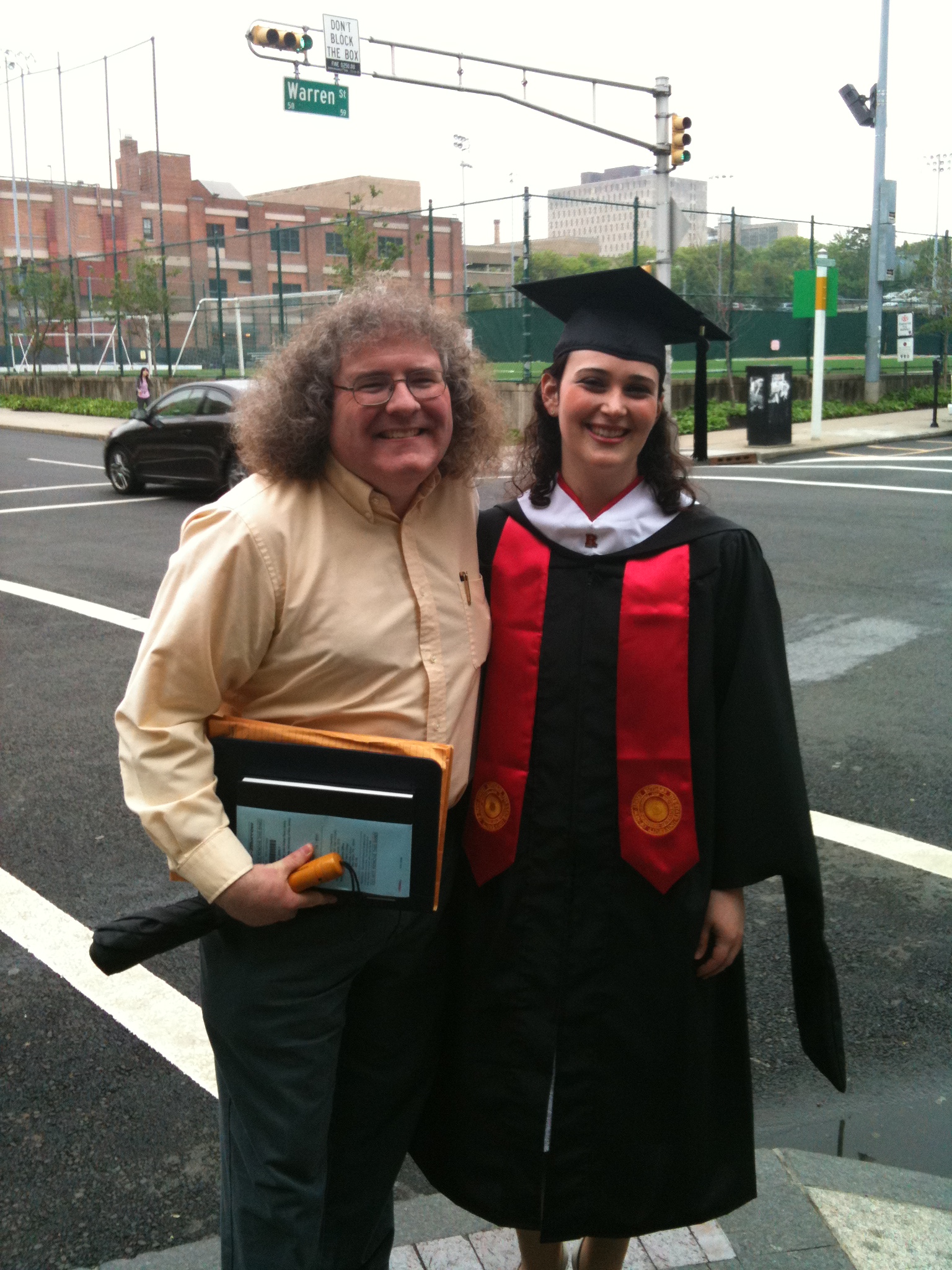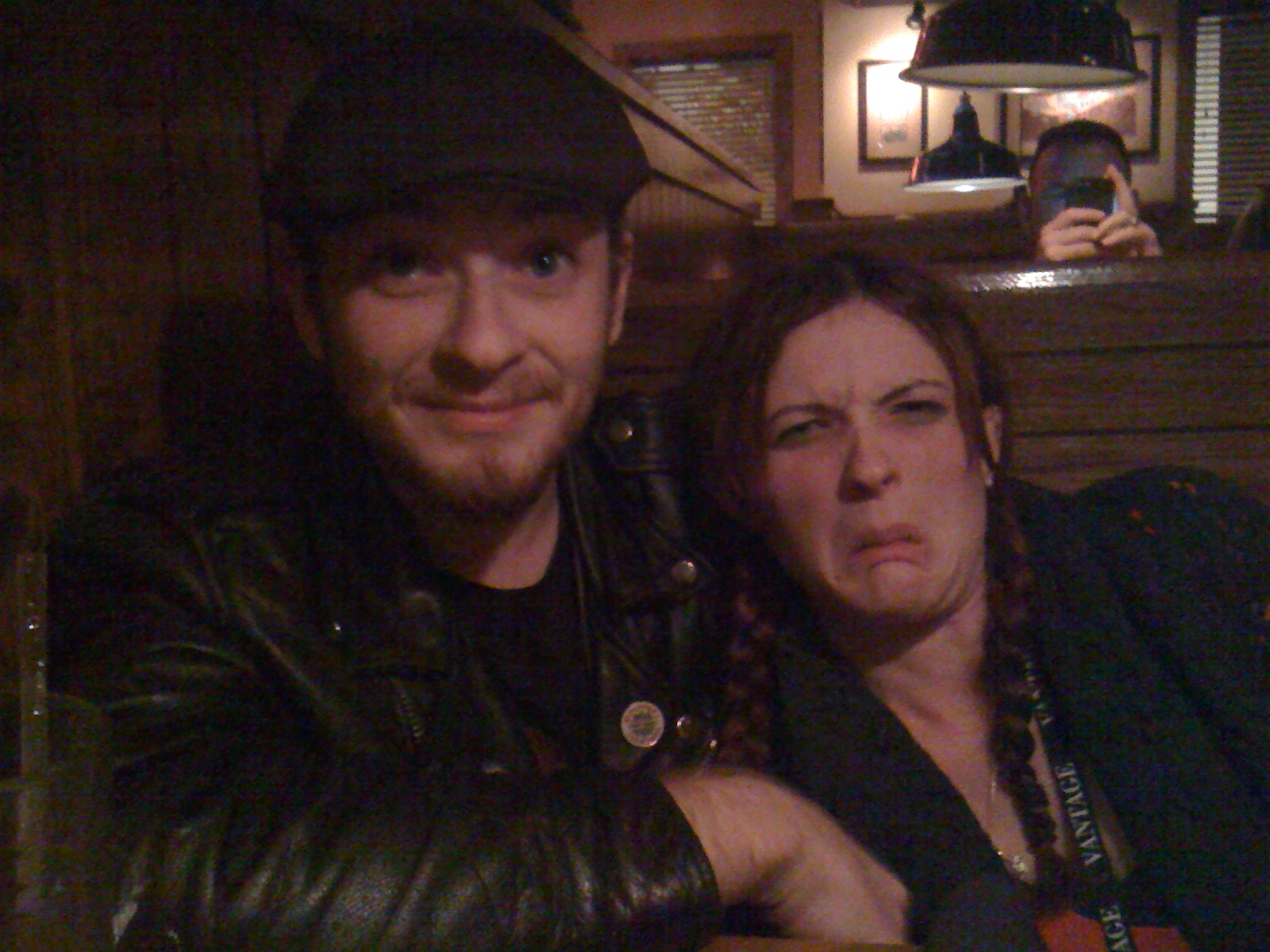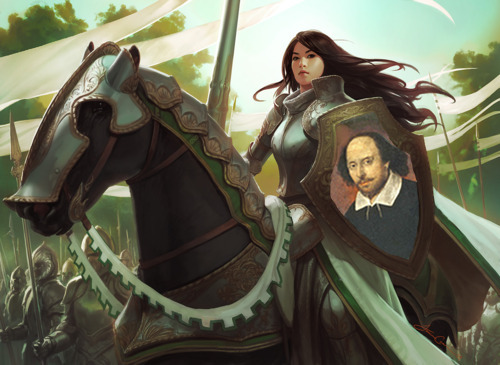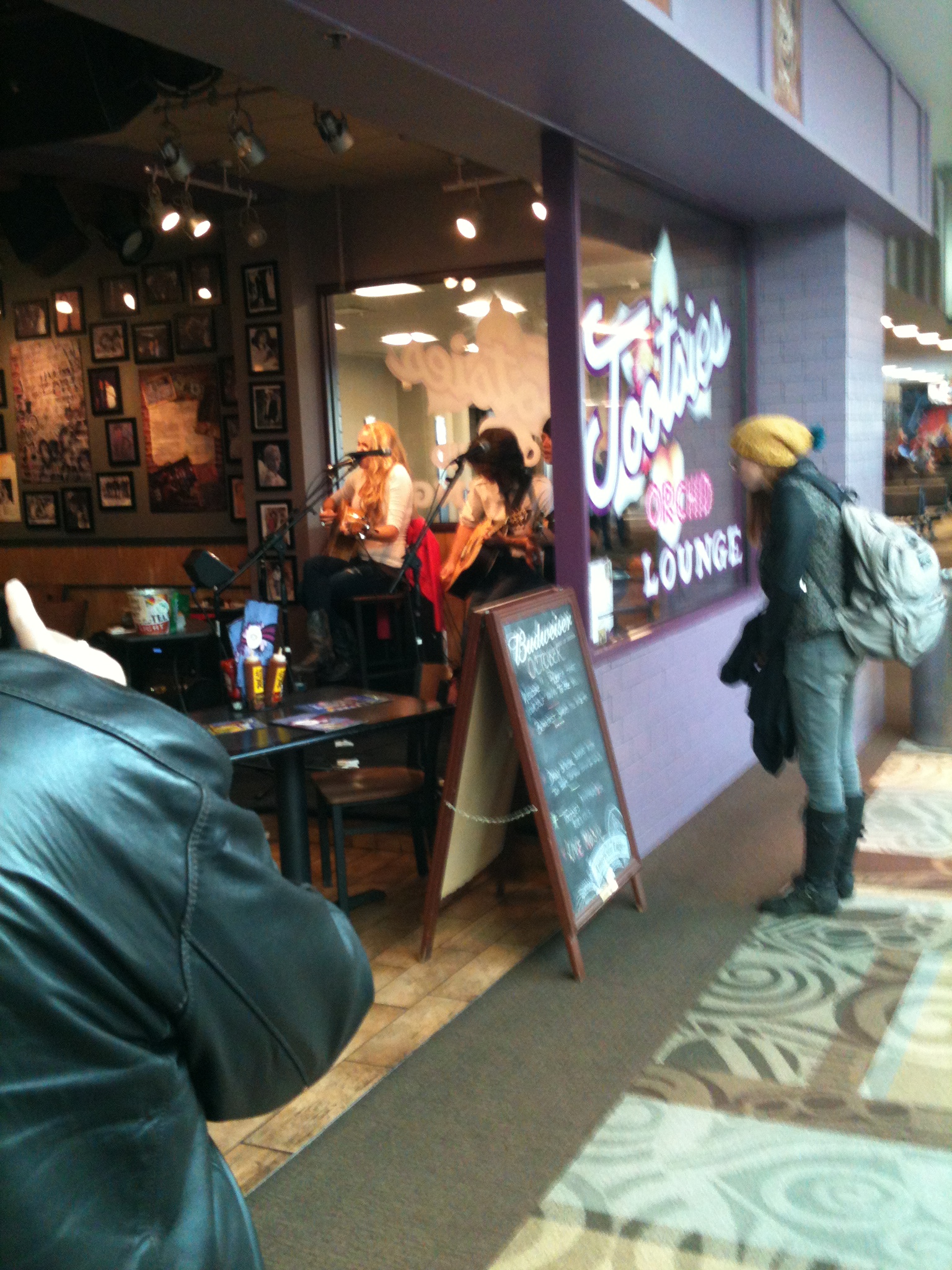Multi-tasking at its best is the name of the game right now. As I begin to take the dive into deep-finals mode, here’s a list of things I have done/will do over the course of last week and this coming weekend.
- After much waiting, gnashing of teeth, and bating of breathe, it looks like we are a GO GO GO! for the launch of Offensive Shadows! About a year ago, my ever-wonderful partner in crime hatched the plan that we should co-host a podcast dedicated to explicating Shakespeare for the common man. He, as a normal smart
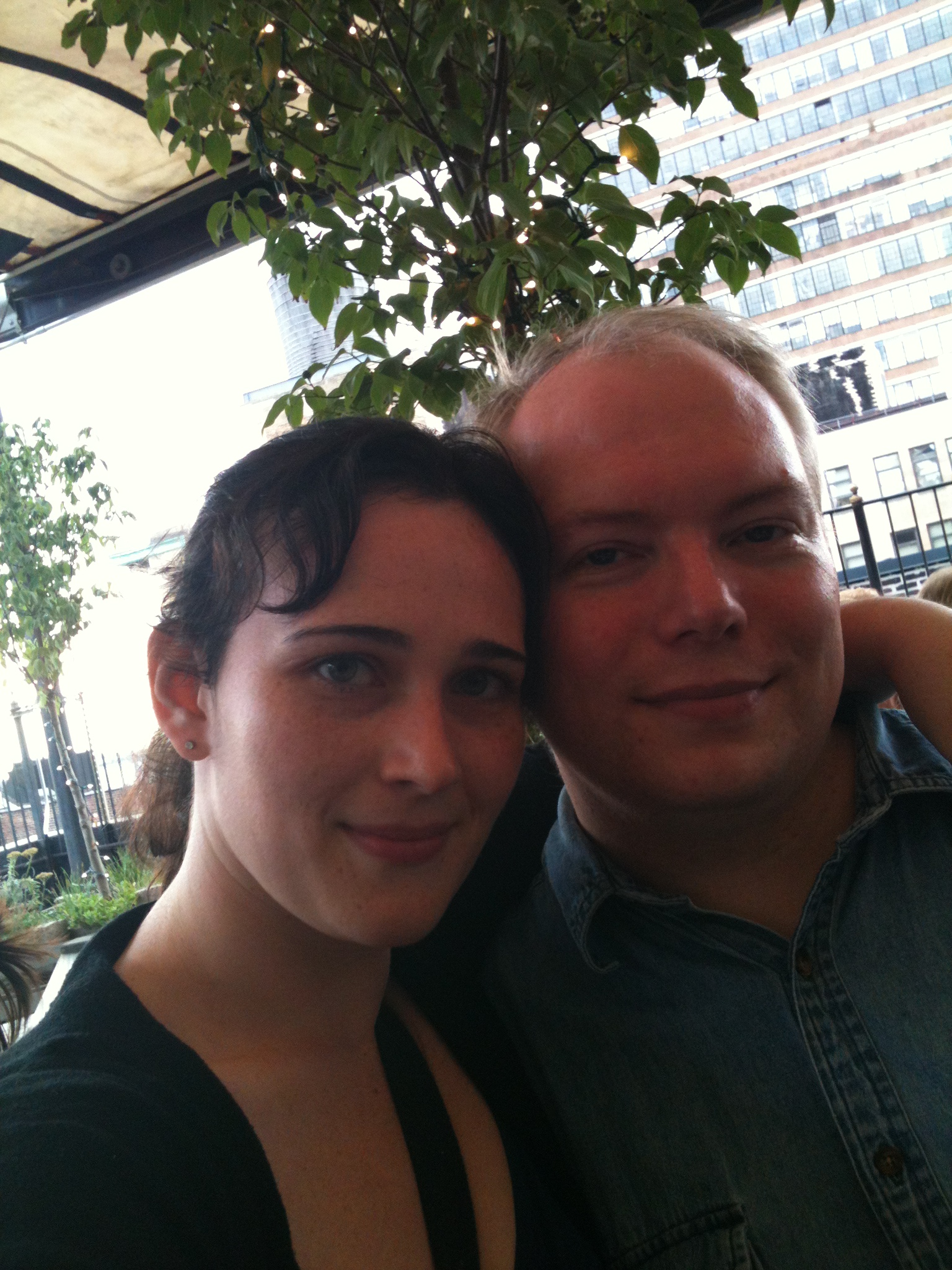
Myself and aforementioned partner in crime during our visit to Gallow Green this summer.
person who has been adulterated by having a best friend doing a PhD in Bardy Goodness, had realized many things over the course of watching me at my work: 1) that Shakespeare (and theatre in general) is pretty neat! Like, much more neat than he had maybe at first thought. 2) That normal smart people (like himself) could definitely get into Shakespeare and connect with it if they had someone to talk to about it . 3) That I’m a good someone to talk to about it and, through the process of this talking to, we could help other people get into it as well.
So we set out on our quest. We are going to cover all of the plays in (roughly) chronological-to-being-written order (as much as we can), omitting the War of the Roses cycle for its own special run in the middle of the series. We will be releasing one episode a week and each play will have between three and five episodes dedicated to it. The episodes will include discussions of the play’s major themes, things to watch for in the play, information about dramaturgy, history, textual notes, and special readings of snippets by our very talented friends.
In short, if you like Shakespeare, or think you might like Shakespeare but have no idea where to begin, or know nothing about Shakespeare and would like to learn, or would really like to listen to the dulcet tones of my voice on a regular basis, you should definitely check us out!
The first series (released this weekend) is a set of preview episodes on Titus Andronicus. Through the process of recording these episodes, we learned a lot about the podcasting process and, by learning a lot, didn’t produce what we thought was our best work. As a result, these episodes will be a taste of what Offensive Shadows has to offer, but won’t be exactly what you’ll get in the real deal episodes.
Our first real deal stuff will be out the following Monday and will focus on Two Gentlemen of Verona.
- Prepping the last of my presentations of the semester. This talk is on the work I’m doing for my paper on William Brown’s 1821-22 production of Richard III. Some pretty nifty and exciting stuff if you like early American theatre.
- Wrapping up research on my two finals papers and transitioning into writing mode. This is one of the more difficult stages of the research process; when is enough enough? There is always something more to learn and when do you walk away from the books and begin to write? For term papers, I constantly have to remind myself that I am not writing a book, I am not expected to know everything about a topic, and I am definitely not going to be able to dig up every bit of archival evidence available. I tend to research until I can see (very clearly) my research looping back in on itself. What I mean by that is that if I’m reading the same facts or the same re-printed letters, looking at the same sketches or the same scripts, or if my sources start to reference each other, it’s pretty clear that I have enough to write a 15-25 page paper. There’s always the lurking gremlins, and generally there will be something you’ve forgotten to verify that will rear its ugly head when you’re elbow-deep in the writing process, but for the most part my philosophy should do you as a general rule.
- I turned in my essays on Measure for Measure for Prologue (Tufts’ Drama publication that comes out in conjunction with each of the shows the department puts on). For Measure, I had to write two 800-1000 word pieces; one a dramaturge’s essay (fondly referred to as “Page Three”, guess why?), and one a sort of op-ed piece about some issue which the play brings up (“Page One”). These essays, short as they were, caused me no undue amount of stress. Prologue is disseminated fairly widely and a good amount of eyes will be upon my work for it; it’s yet another way that we graduate students can bring honor and glory to the department. Have I done it with my pithy writing skills? Stay tuned to find out!
- Prepping my abstract for submission to the 2013 Comparative Drama Conference. I had a great time at this conference last year, and have been helping the conference
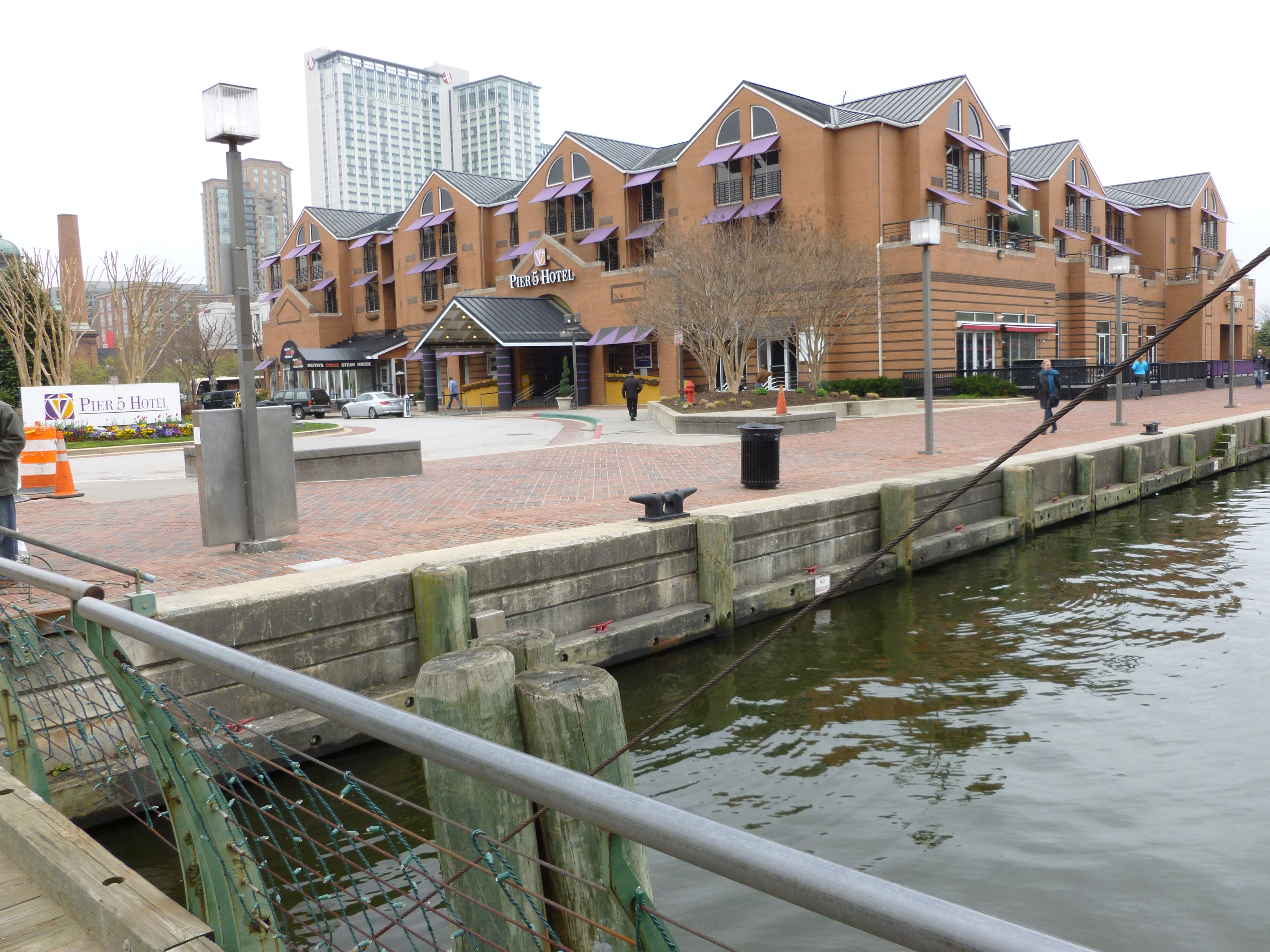
The CDC conference hotel. AWESOME!
chair get an official conference twitter feed on its feet. I’m pretty excited about the possibilities that social media can bring to a national conference like this, so here’s hoping my abstract wows them enough to ask me down there to speak!
So that’s me right now. Excuse me as I take a deep breathe and head down deep into the land of paper writing. I think I’m well-prepared for it at least; and I know that I will always have my trusty French press at my side. Small comfort on this long and winding road to slay the semester’s final chimeras.
Have a great weekend!


